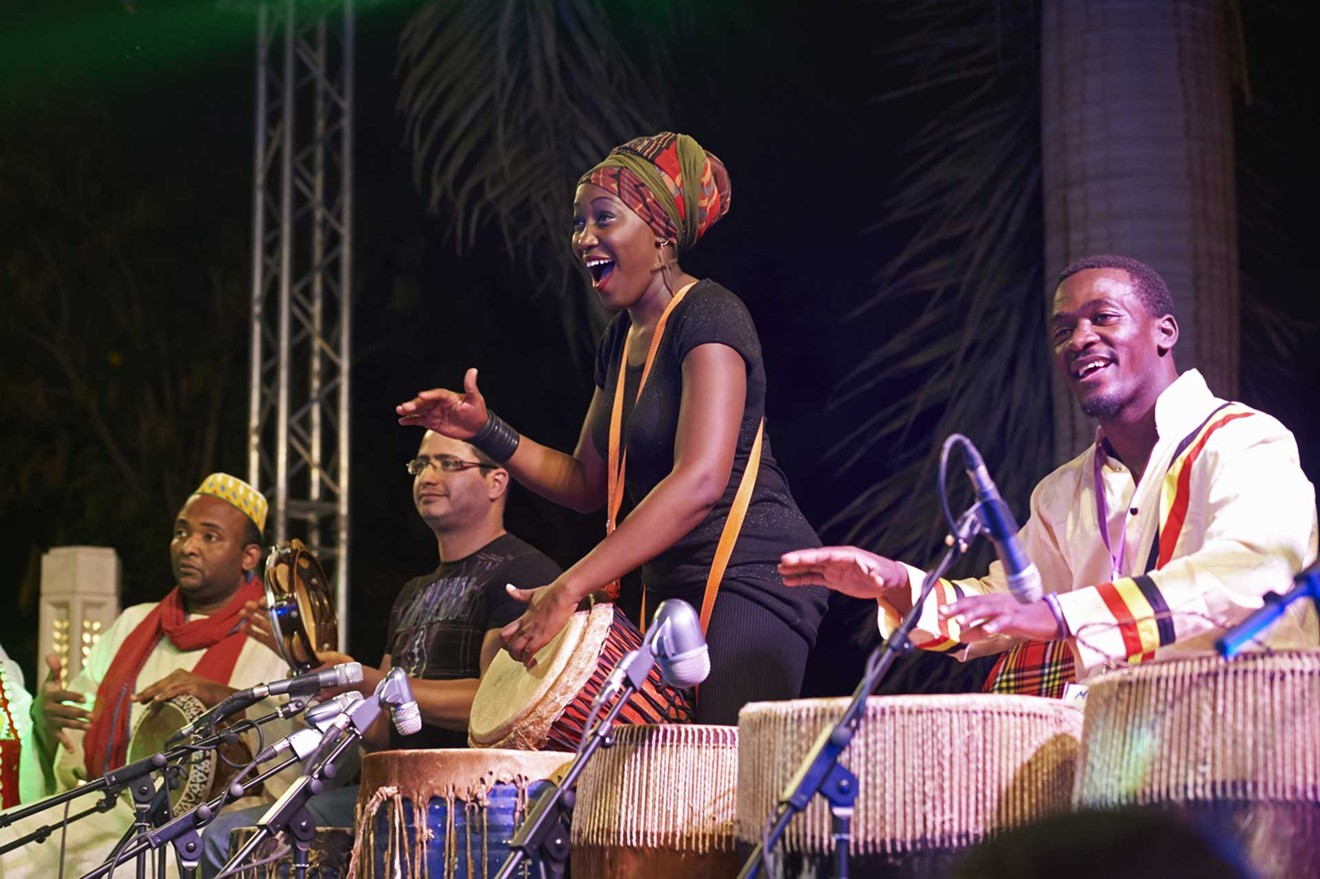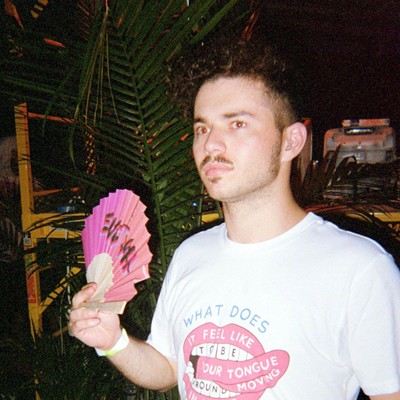Civic-minded community organizing is having a moment in the United States. Recent political events and announcements – take your pick, really — have spurred people to mobilize, united under shared causes and a steadfast commitment to the pursuit of justice. We saw it last week at the Women’s March on Washington (which, if global participation was anything to go by, wound up being more like a women’s march on the world); we’ve been seeing it with the coordination of volunteer efforts and mass donations to organizations and causes in peril. And if momentum keeps up, the Scientists’ March on Washington could wind up as an event of proportional importance and scale.
Mina Girgis, an Egyptian ethnomusicologist and Florida State University graduate, knows a thing or two about assembling en masse to solve a daunting problem in creative fashion. Since 2011, Girgis has acted as producer and CEO of the Nile Project, a musically oriented endeavor aimed at fostering cooperation, raising awareness, and providing education concerning the water conflicts around the Nile River. What began as a large-scale live band comprising musicians from all 11 countries along the Nile has, if possible, become even more ambitious in the ensuing six years, with university residencies and workshops now accompanying the Nile Project’s ongoing touring. Speaking from Athens, Georgia, where the group is holding a two-week residency and rehearsing in advance of its forthcoming U.S. tour and January 29 Fort Lauderdale show, Girgis is more than eager to outline the project’s concern for the Nile Basin.
“The Nile is an interesting microcosm of the world, and there’s such geographic and cultural diversity; it’s the cradle of humankind,” Girgis says. “You have a lot of the challenges that we’re talking about when we’re talking about migrants and all of the migration problems in Europe right now… All of that started in East Africa. When we’re talking about climate change, the [Nile] Delta in Egypt is one of the three most affected regions in the world by sea-level rise. There are so many of the issues that we’re talking about because it’s a huge and vast area of the world.”
This undertaking has brought Girgis and the Nile Project’s myriad musicians across the expanse of the Nile, in addition to much of the globe. Despite mounting the project himself, Girgis is struck by the project's success and impact on global audiences.
“The way this project resonated with audiences in Egypt is very similar to the way it's resonated with audiences in Ethiopia, Uganda, and in the United States and Europe,” Girgis remarks. “I think there’s something simple and hopeful about the project that is very refreshing. It’s incredible to see how this reaction takes place on so many levels.”
Given the current climate — both the literal, increasingly warm one and the dystopian freak show that passes for politics these days – Girgis says many people have asked him how the success of the Nile Project can be replicated elsewhere. In his estimation, the strength of the project lies in its relative simplicity.
“I think what I’ve learned from this experience with the Nile Project is to be as specific and concrete as possible, especially when it comes to using the arts to have an impact beyond the arts. In our case, we’re starting with the hypothesis that music can have an impact on the sustainability of the Nile basin,” Girgis explains. “[The] music that we’re making helps people become more curious about the cultures of their neighbors that may not share land borders with them, but they share water. That’s a very specific thing that music can help with. Music cannot reverse climate change; it cannot change the way governments are going about their negotiations around a dam. But it can really inspire citizens from these countries to think differently about each other and start similar collaborations around creative solutions to some of these waters' problems, and that’s exactly where we start with these musical interventions.”
If the past week has been any indicator of what lies ahead, we’ll gladly take all of the musical interventions we can get.
The Nile Project
6 p.m. Sunday, January 29, at the Parker Playhouse, 707 NE Eighth St., Fort Lauderdale; 954-462-0222; parkerplayhouse.com. Tickets cost $45 plus fees via ticketmaster.com.
[
{
"name": "Air - MediumRectangle - Inline Content - Mobile Display Size",
"component": "19274298",
"insertPoint": "2",
"requiredCountToDisplay": "2"
},{
"name": "Editor Picks",
"component": "17482312",
"insertPoint": "4",
"requiredCountToDisplay": "1"
},{
"name": "Inline Links",
"component": "18711090",
"insertPoint": "8th",
"startingPoint": 8,
"requiredCountToDisplay": "7",
"maxInsertions": 25
},{
"name": "Air - MediumRectangle - Combo - Inline Content",
"component": "17482310",
"insertPoint": "8th",
"startingPoint": 8,
"requiredCountToDisplay": "7",
"maxInsertions": 25
},{
"name": "Inline Links",
"component": "18711090",
"insertPoint": "8th",
"startingPoint": 12,
"requiredCountToDisplay": "11",
"maxInsertions": 25
},{
"name": "Air - Leaderboard Tower - Combo - Inline Content",
"component": "17482313",
"insertPoint": "8th",
"startingPoint": 12,
"requiredCountToDisplay": "11",
"maxInsertions": 25
}
]













